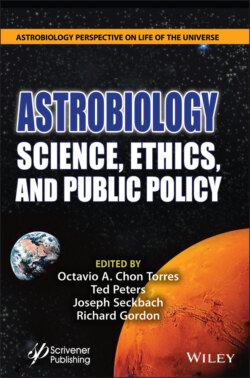Читать книгу Astrobiology - Группа авторов - Страница 40
2.3.9 Should We Establish Human Settlements on Mars?
ОглавлениеShould we earthlings become a transplanetary species? Should we begin establishing human settlements on Mars? [2.44].
Colonize Mars? Yes, says Robert Zubrin, director of the Mars Society, because it’s our destiny. “Mars can and should be settled with Earth émigrés” [2.96]. No, cautions NASA consultant Linda Billings, because colonization would exacerbate terrestrial inequality. “It would be unethical to contaminate a potentially habitable planet for further scientific exploration and immoral to transport a tiny, non-representative, subset of humanity—made up of people who could afford to spend hundreds of thousands to millions of dollars on the trip—to live on Mars” [2.8]. Stealing resources from the lower classes to send the wealthier classes to Mars would violate the principles of distributive justice.
Some critics argue that, because we humans have messed up Earth, it would be immoral to do the same to Mars. Adler Planetarium astronomer Grace Wolf-Chase admonishes us to clean up Earth’s mess before we mess up another planet. “Considering the possibility of extraterrestrial species motivates us to re-evaluate humanity’s history as stewards of Earth, and to examine critically human behaviors before migrating to other worlds” [2.93].
Would colonization be legal? The UN Outer Space Treaty, recall, holds that Mars, like other celestial locations, cannot be subject to national appropriation by claim of sovereignty, by means of use or occupation. Might the USA or China—whichever country lands first—simply stake a claim? “I don’t see how Mars could be anything but a land grab driven by homesteading rules,” pines Christopher Wanjek [2.91].
Among the many quandaries that the prospect of colonization raises is this: will earthlings living on Mars still be earthlings? Or, will evolution require such a level of adaptation that humans will become posthuman? Polish scientist Konrad Szocik along with his colleagues entertains this quandary and responds by recommending CRISPR gene editing to enhance adaptation. “It is worth keeping in mind that living in different—let’s call them unnatural places, which are not a part of the environment of evolutionary adaptedness—locations is not problematic per se, if humans are prepared in an appropriate way to live there” [2.82]. Astroethicists of responsibility must engage the question: Is it our moral right if not obligation to engineer the future of human evolution so that a successor species—a posthuman species—emerges?
Here is my tentative response: if a biosphere exists on Mars, then we should treat it as having intrinsic value. But if Mars is currently lifeless then, despite the interplanetary necessity for genetic engineering, we should take advantage of the opportunity to seed the Red Planet with life for the sake of its future. This becomes the moral warrant for both terraforming and colonization.
What about the mega vision of extending the habitat of Homo sapiens to outer space, turning earthlings into a transplanetary species? I applaud such a grand vision. I only add two grumbles, one scientific and the other theological. Scientifically, once Earth’s colonists have adapted to a significantly new off-Earth environment, their descendants may no longer be human. We will not be able to say confidently that a single transplanetary species has come into existence. Theologically, we ought not to expect a utopian life to commence on a new planet. We ought not to expect we will create El Dorado or a heaven in the heavens. Earth’s colonists to new worlds will bring with them a very ancient yet perduring pattern of living: sin.
